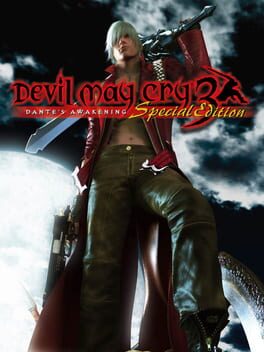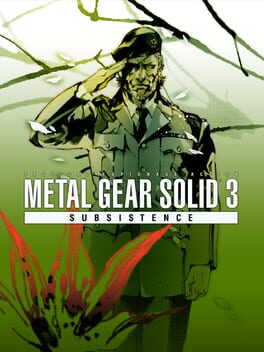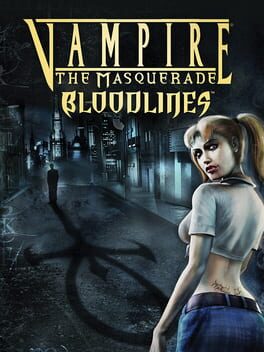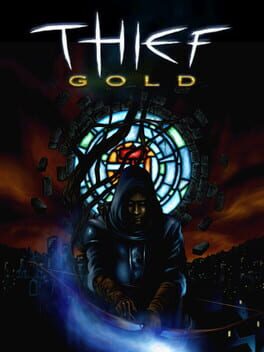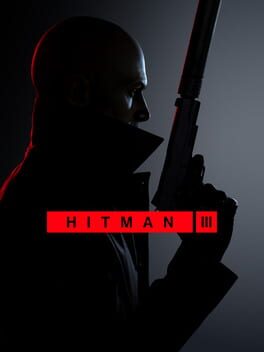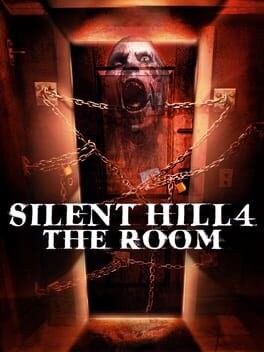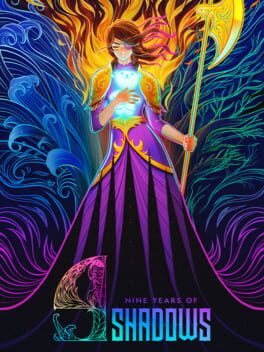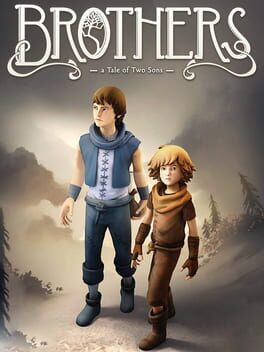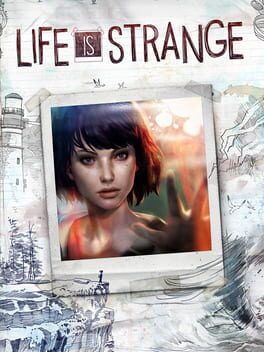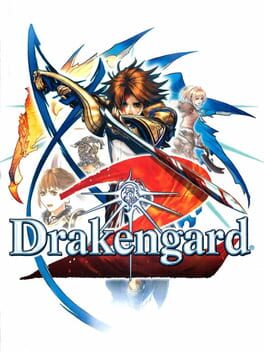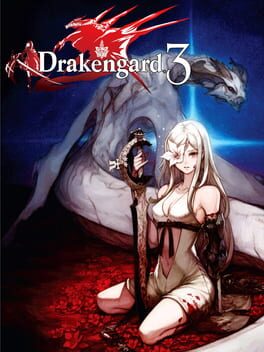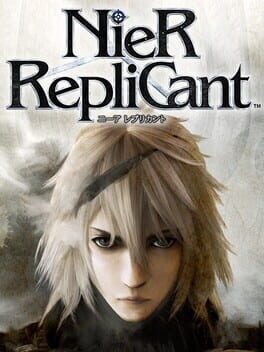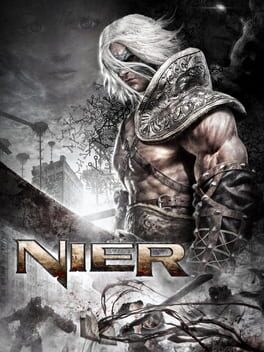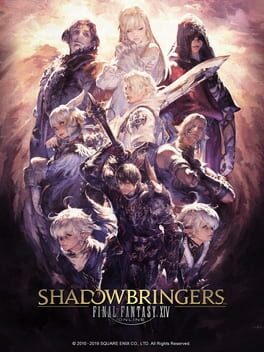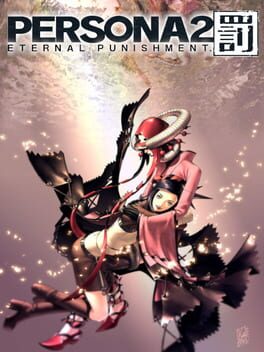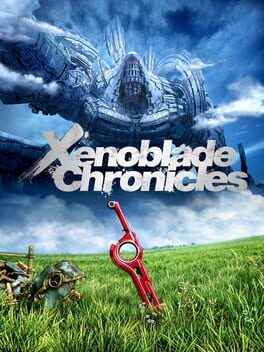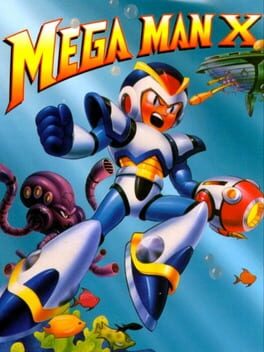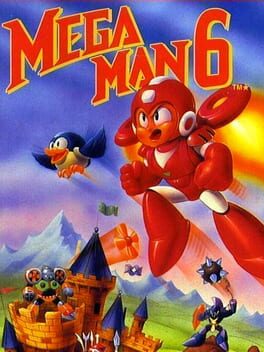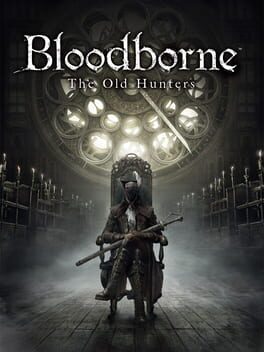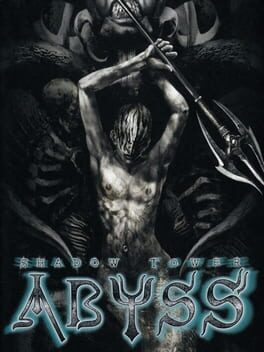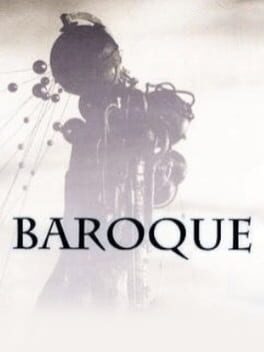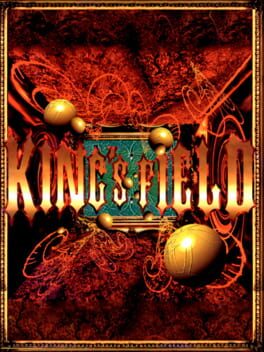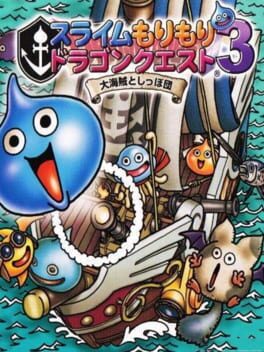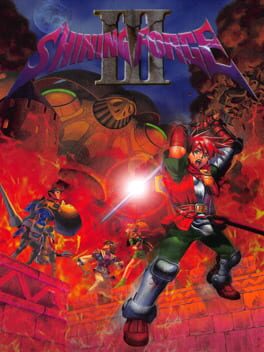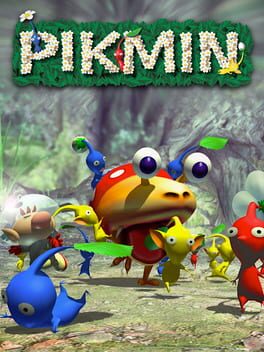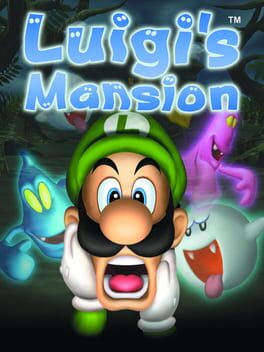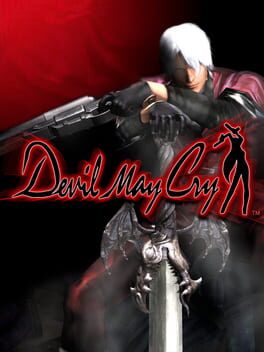Phishlips
15 reviews liked by Phishlips
Cyberpunk 2077
2020
No matter where we come from we’re all headed to the same place.
The eternal oblivion is an inevitability every human must grapple with, the concept of death is terrifying and for much of our lives we will spend many years pondering the idea and coming to terms with the inevitability of such a fate. It’s our choice whether or not we will waste those moments or if we will face down death and live our lives to the fullest despite our eventual fate. Cyberpunk is a game about life and death, how we grapple with our mortality and what will use our remaining time on this planet doing. Will we push away the ones we love to avoid hurting them or will we spend our final weeks making the most of that time with our loved ones?
The dilemma of the ticking death clock on V is what truly makes this game special, we’re faced with the inevitability of death and it forces the player and V to make the most of their time, there is no guarantee that V will survive and find a way out so we work under the assumption that we must make the most of our time on this Earth before we die. That limited time is what makes this game special to me, we’re forced to live life to the fullest and in spite of all of that V keeps fighting, not only for themself, but for their friends, the ones they lost, and for a better future, even if it’s a future that they won’t live to see.
Cyberpunk for all of its flaws is still a beautiful game and one I will never forget, it’s a powerful experience that will sit with me for many years to come. The bonds I formed in this game, the time I spent in Night City and the Badlands, the story I experienced, it’s all truly unforgettable.
Arguably the greatest open-world RPG I have played, it sits among greats like Morrowind, New Vegas, and Daggerfall.
“V, never stop fighting.”
-Johnny Silverhand
The eternal oblivion is an inevitability every human must grapple with, the concept of death is terrifying and for much of our lives we will spend many years pondering the idea and coming to terms with the inevitability of such a fate. It’s our choice whether or not we will waste those moments or if we will face down death and live our lives to the fullest despite our eventual fate. Cyberpunk is a game about life and death, how we grapple with our mortality and what will use our remaining time on this planet doing. Will we push away the ones we love to avoid hurting them or will we spend our final weeks making the most of that time with our loved ones?
The dilemma of the ticking death clock on V is what truly makes this game special, we’re faced with the inevitability of death and it forces the player and V to make the most of their time, there is no guarantee that V will survive and find a way out so we work under the assumption that we must make the most of our time on this Earth before we die. That limited time is what makes this game special to me, we’re forced to live life to the fullest and in spite of all of that V keeps fighting, not only for themself, but for their friends, the ones they lost, and for a better future, even if it’s a future that they won’t live to see.
Cyberpunk for all of its flaws is still a beautiful game and one I will never forget, it’s a powerful experience that will sit with me for many years to come. The bonds I formed in this game, the time I spent in Night City and the Badlands, the story I experienced, it’s all truly unforgettable.
Arguably the greatest open-world RPG I have played, it sits among greats like Morrowind, New Vegas, and Daggerfall.
“V, never stop fighting.”
-Johnny Silverhand
one of the best to ever do it. the goat. THE GOAT. i fucking love Devil May Cry 3. Every morning before i get ready i look in the mirror and say "foolishness dante... foolishness." because I am HER. This game is HIM. i fucking lvoe Devil May Cry 3. i love Devil May Cry 3 so much i dont even even pay other action games any attention. Mid Gear Rising? feels like knockoff Bayo. Bayomidda? Knock off DEVIL MAY CRY 3!!!! if they made a Devil May Cry 3 buttplug i would buy it and wear it constantly. i would seriously never take it out. i couldnt shove Devil May Cry 3's balls up my mouth any furher. If they made a Devil May Cry 3 dildo i would seriously never stop fucking myself with it. WE LOVE Devil May Cry 3!!!!
This review contains spoilers
Metal Gear Solid 3 takes a super different approach on the series compared to what 1 and 2 were. MGS 2 was extremely innovative in its own ways, but gameplay wise, it was extremely similar to 1 in terms of its mechanics. Obviously some of the game's structure is meant to be similar to MGS 1 as part of the plot, but mechanically it's just 1 with more depth and more attention to detail. Guards don't have the intelligence of a mole rat anymore, they can spot you if your foot is poking past a wall, they call for backup, they notice if you downed/killed their comrades and make everyone go on alert, etc. It’s a natural evolution of the stuff that was in 1.
MGS 3 ups the ante a little bit in terms of stealth mechanics. The first thing any first time player will notice is that they took away your soliton radar. When i was playing it thought that this would just be for the beginning couple of hours before they said sike and gave you the real thing, but once the game got into full swing i started to get really confused why they took my radar away. “How do they expect me to sneak around if I can't see anything coming my way?” was my first thought, and I was stuck in that mindset for the first couple hours of playing. I was using the top down camera angle that the original Snake Eater used rather than the third person free roaming camera that Subsistence added, and I was frequently getting annoyed and upset early on in the game. I was trying so hard to play it like the old games that I was limiting myself. Playing MGS 3 like 1 or 2 will get you nowhere, and once you realize this, the real beauty of MGS 3 starts to be clear. The environments are ridiculously detailed, and demand the player pay attention to their surroundings. The camo index is a wonderful mechanic, because it just serves to make the core design of the game more prevalent. Snake has to survive in this place. He has to use everything at his disposal to stay on top. You don’t heal with rations anymore, instead your health automatically regenerates relative to your stamina meter, and Snake has to hunt for his own food to keep that meter up. You have to rely on first person mode a lot more to see where your enemies are, and, overall, you have to be a lot more methodical when it comes to your stealth. Enemy AI sees even more improvements from what was in MGS 2 as well. They’re a lot more aware of your footsteps now and in general give you a harder time. There's also a lot of improvements present in the boss fights. Metal Gear boss fights have always been kinda zany, and MGS3 keeps that tradition up, but I feel that their design philosophy fits the series a whole lot more now. A lot of them actually require you to use stealth now. Most of the time, you can get the leg up on a boss if you stay hidden. Even in a boss fight like The Fear where stealth isn't an option, you still have to use your knowledge of the new mechanics to your advantage if you want a chance at winning. Of course there are outliers, Volgin’s first fight feels kind of like an MGS 2 boss, and the fight against the Shagohod is pretty clearly just for spectacle (which isn't a bad thing). This design philosophy is best realized in the final fight, though. As far as final bosses go, MGS has had it pretty good. Metal Gear Rex was climactic and interesting enough for a conclusion to MGS 1, and Solidus was cool in MGS 2 because you got to use the sword. However, despite both of these fights being cool, they don’t fit the gameplay of the rest of the game particularly well. That doesnt mean they’re bad, (same for the rest of the bosses in MGS 1 and 2) but they don't even come close to a final fight like the one vs. The Boss. The Boss has it all. A beautiful battle arena, emotional weight and buildup, and a decent challenge. The fight against The Boss perfectly encapsulates the design philosophy of MGS 3, and it's easily one of the best final bosses in gaming. Even if the fight wasn't a perfect blend of stealth and close quarters combat, it would be up there for the build up alone. I'll say more on that when I talk about the story, though. The only significant complaint I have about this game is that it really does not run well. I played this on my ps2, and there's A LOT of frame rate issues. Anytime there's a lot of shit on screen I feel like I can hear my ps2 begging me to just put it out of its misery. MGS 3 is VERY good looking for a ps2 game, but it definitely doesn’t come without a price. Fights like The Pain and The Fury are particularly bad. It’s not quite a powerpoint slide show, but it's pretty bad at times. I also can't help but feel like MGS 3 is most likely best experienced in HD. The game looks great, but when the stealth so heavily relies on seeing decently far ahead of you and paying attention to your surroundings, the 480p resolution of the ps2 starts to become a real hindrance. I don’t mean to undermine how good MGS 3 looks though, because it looks amazing. There's a lot of beautiful work here, and honestly im almost impressed this shit runs on a ps2 at all. The fight against The Sorrow, looks INSANE for the hardware. I definitely don’t think you'll have a bad time playing the game on hardware, i did it and it was just fine, but if you have a ps3 I think it's best to pick up the HD collection there, or to play the game on an emulator or something.
As far as the story goes, MGS 3 is a lot less “in your face” compared to MGS 2. 3 is still very focused on the story, but you won't find cutscenes that are gonna last 10-20 minutes at a time as often as you did in 2. Not that this was a bad thing in 2 at all, it's just nice that they reeled it back before they got even more insane (or so I hear) in MGS 4. MGS 3 also has less mindfuck “what the fuck am i watching” type shit in it, so its a lot easier to digest. Again, not that that's a bad thing, in fact it's what I love so much about the ending hours of 2, but 3 just tells a much simpler story. There’s less thematic density here, but that's not to say there isn’t any at all. I mean fuck, its Metal Gear. You can’t get out of one of these games without at least a little bit of political/social commentary. MGS 3 tells the origin story of Big Boss, the guy who Snake is a clone of in case you forgot, and It’s really interesting to play as him and have him be the good guy since he was the villain for both Metal Gear and Metal Gear 2. One of the best things about MGS 3 that gets set in early on is Snake’s relationship with The Boss. They’re almost like Mother and Son. Snake clearly has a lot of love and adoration for her, just not in a romantic way. I also feel like it's pretty apparent in her death scene where she reveals the snake scar across her chest and says “this is proof that i was once a mother.” It makes her defection to the Soviet Union all the more painful for him, considering he just spent the last 10 years learning everything he could from her. Oh yeah, speaking of the Soviet Union, MGS 3 makes sure you know some world history in case you fell asleep during 10th grade history class or something. I always find stuff like this pretty cool, and it's even cooler that the game starts like 2 weeks or so (I think) after the Cuban Missile Crisis. Anyway, Snake and The Boss’s relationship is built up throughout the entire game, and that final fight is the perfect conclusion to it all. Throughout the whole game you get shown Snake getting his shit kicked in by the Boss in every close quarters fight, and the boss fight itself doesn’t disappoint in this regard. Other than Snake’s relationship with The Boss, Eva is also super interesting. She serves as this game's love interest, but compared to Meryl in the past, she's way more interesting. I'll be honest, I'm still not quite sure what to make of her eventual betrayal, as well as her being one of The Philosophers in the end, but at least the relationship between her and Snake feels earned. A lot of the scenes with her and Snake have their fair share of horny bait, but Eva and Snake have a lot of chemistry. (I seriously devoted extensive thoughts trying to think of some sort of thematic reason as to why you’re allowed to go into first person mode to look at her tits in every single cutscene she's in, and couldn’t think of any other conclusion besides that Kojima was writing this game with this dick in his hand strokin his shit or something IDK. if this is a bad reading of the games narrative then go ahead and make fun of me but i seriously think he was just really fucking horny) The scene at the end where they get about as close to having sex as they can on the ps2 feels rewarding, because its really nice to see these two finally have their happy ending … Or so Snake thinks. Yeah, speaking of Eva’s eventual betrayal, the end of the game is pretty crazy. I’ll spare the exact details, because that's honestly not really what this review is for, but it's super melancholy. At its core. Metal Gear Solid 3 tells a story of how the Government will do nothing but stab those who respect it the most in the back. They destroy at their own convenience, and allow the ones who did the most to protect be remembered as criminals. They will use anyone and anything as a scapegoat, so long as they can cover their own ass. There’s truly nothing like the ending cutscene of MGS 3, and it makes it clear to see why Big Boss ends up going against the U.S Government in games that take place later in the timeline. I have never seen a video game character have as much emotion in their face as Big Boss in that final cutscene, even with all the technological advancements in video games today. MGS 3 really humanizes Big Boss in a way that Metal Gear 1 and 2 couldn't. MGS 3’s story is an absolute masterpiece. I haven’t even mentioned characters who are key to the narrative like Ocelot and Volgin either. I could fluff this up a whole lot more by going into those two if I felt like it, but I feel like I've said enough about the core themes of this game and what makes it so good already. If you’ve read this far into the review and you still haven’t played the game then go and form opinions on the whole thing yourself.
Play Metal Gear Solid 3 if you haven't. It’s a good starting point for the franchise (although i think you should play 1 and 2 first, it's just not the end of the world if you don't.) and a phenomenal game all around. Shout outs to the credits song for being so good too. 10/10
MGS 3 ups the ante a little bit in terms of stealth mechanics. The first thing any first time player will notice is that they took away your soliton radar. When i was playing it thought that this would just be for the beginning couple of hours before they said sike and gave you the real thing, but once the game got into full swing i started to get really confused why they took my radar away. “How do they expect me to sneak around if I can't see anything coming my way?” was my first thought, and I was stuck in that mindset for the first couple hours of playing. I was using the top down camera angle that the original Snake Eater used rather than the third person free roaming camera that Subsistence added, and I was frequently getting annoyed and upset early on in the game. I was trying so hard to play it like the old games that I was limiting myself. Playing MGS 3 like 1 or 2 will get you nowhere, and once you realize this, the real beauty of MGS 3 starts to be clear. The environments are ridiculously detailed, and demand the player pay attention to their surroundings. The camo index is a wonderful mechanic, because it just serves to make the core design of the game more prevalent. Snake has to survive in this place. He has to use everything at his disposal to stay on top. You don’t heal with rations anymore, instead your health automatically regenerates relative to your stamina meter, and Snake has to hunt for his own food to keep that meter up. You have to rely on first person mode a lot more to see where your enemies are, and, overall, you have to be a lot more methodical when it comes to your stealth. Enemy AI sees even more improvements from what was in MGS 2 as well. They’re a lot more aware of your footsteps now and in general give you a harder time. There's also a lot of improvements present in the boss fights. Metal Gear boss fights have always been kinda zany, and MGS3 keeps that tradition up, but I feel that their design philosophy fits the series a whole lot more now. A lot of them actually require you to use stealth now. Most of the time, you can get the leg up on a boss if you stay hidden. Even in a boss fight like The Fear where stealth isn't an option, you still have to use your knowledge of the new mechanics to your advantage if you want a chance at winning. Of course there are outliers, Volgin’s first fight feels kind of like an MGS 2 boss, and the fight against the Shagohod is pretty clearly just for spectacle (which isn't a bad thing). This design philosophy is best realized in the final fight, though. As far as final bosses go, MGS has had it pretty good. Metal Gear Rex was climactic and interesting enough for a conclusion to MGS 1, and Solidus was cool in MGS 2 because you got to use the sword. However, despite both of these fights being cool, they don’t fit the gameplay of the rest of the game particularly well. That doesnt mean they’re bad, (same for the rest of the bosses in MGS 1 and 2) but they don't even come close to a final fight like the one vs. The Boss. The Boss has it all. A beautiful battle arena, emotional weight and buildup, and a decent challenge. The fight against The Boss perfectly encapsulates the design philosophy of MGS 3, and it's easily one of the best final bosses in gaming. Even if the fight wasn't a perfect blend of stealth and close quarters combat, it would be up there for the build up alone. I'll say more on that when I talk about the story, though. The only significant complaint I have about this game is that it really does not run well. I played this on my ps2, and there's A LOT of frame rate issues. Anytime there's a lot of shit on screen I feel like I can hear my ps2 begging me to just put it out of its misery. MGS 3 is VERY good looking for a ps2 game, but it definitely doesn’t come without a price. Fights like The Pain and The Fury are particularly bad. It’s not quite a powerpoint slide show, but it's pretty bad at times. I also can't help but feel like MGS 3 is most likely best experienced in HD. The game looks great, but when the stealth so heavily relies on seeing decently far ahead of you and paying attention to your surroundings, the 480p resolution of the ps2 starts to become a real hindrance. I don’t mean to undermine how good MGS 3 looks though, because it looks amazing. There's a lot of beautiful work here, and honestly im almost impressed this shit runs on a ps2 at all. The fight against The Sorrow, looks INSANE for the hardware. I definitely don’t think you'll have a bad time playing the game on hardware, i did it and it was just fine, but if you have a ps3 I think it's best to pick up the HD collection there, or to play the game on an emulator or something.
As far as the story goes, MGS 3 is a lot less “in your face” compared to MGS 2. 3 is still very focused on the story, but you won't find cutscenes that are gonna last 10-20 minutes at a time as often as you did in 2. Not that this was a bad thing in 2 at all, it's just nice that they reeled it back before they got even more insane (or so I hear) in MGS 4. MGS 3 also has less mindfuck “what the fuck am i watching” type shit in it, so its a lot easier to digest. Again, not that that's a bad thing, in fact it's what I love so much about the ending hours of 2, but 3 just tells a much simpler story. There’s less thematic density here, but that's not to say there isn’t any at all. I mean fuck, its Metal Gear. You can’t get out of one of these games without at least a little bit of political/social commentary. MGS 3 tells the origin story of Big Boss, the guy who Snake is a clone of in case you forgot, and It’s really interesting to play as him and have him be the good guy since he was the villain for both Metal Gear and Metal Gear 2. One of the best things about MGS 3 that gets set in early on is Snake’s relationship with The Boss. They’re almost like Mother and Son. Snake clearly has a lot of love and adoration for her, just not in a romantic way. I also feel like it's pretty apparent in her death scene where she reveals the snake scar across her chest and says “this is proof that i was once a mother.” It makes her defection to the Soviet Union all the more painful for him, considering he just spent the last 10 years learning everything he could from her. Oh yeah, speaking of the Soviet Union, MGS 3 makes sure you know some world history in case you fell asleep during 10th grade history class or something. I always find stuff like this pretty cool, and it's even cooler that the game starts like 2 weeks or so (I think) after the Cuban Missile Crisis. Anyway, Snake and The Boss’s relationship is built up throughout the entire game, and that final fight is the perfect conclusion to it all. Throughout the whole game you get shown Snake getting his shit kicked in by the Boss in every close quarters fight, and the boss fight itself doesn’t disappoint in this regard. Other than Snake’s relationship with The Boss, Eva is also super interesting. She serves as this game's love interest, but compared to Meryl in the past, she's way more interesting. I'll be honest, I'm still not quite sure what to make of her eventual betrayal, as well as her being one of The Philosophers in the end, but at least the relationship between her and Snake feels earned. A lot of the scenes with her and Snake have their fair share of horny bait, but Eva and Snake have a lot of chemistry. (I seriously devoted extensive thoughts trying to think of some sort of thematic reason as to why you’re allowed to go into first person mode to look at her tits in every single cutscene she's in, and couldn’t think of any other conclusion besides that Kojima was writing this game with this dick in his hand strokin his shit or something IDK. if this is a bad reading of the games narrative then go ahead and make fun of me but i seriously think he was just really fucking horny) The scene at the end where they get about as close to having sex as they can on the ps2 feels rewarding, because its really nice to see these two finally have their happy ending … Or so Snake thinks. Yeah, speaking of Eva’s eventual betrayal, the end of the game is pretty crazy. I’ll spare the exact details, because that's honestly not really what this review is for, but it's super melancholy. At its core. Metal Gear Solid 3 tells a story of how the Government will do nothing but stab those who respect it the most in the back. They destroy at their own convenience, and allow the ones who did the most to protect be remembered as criminals. They will use anyone and anything as a scapegoat, so long as they can cover their own ass. There’s truly nothing like the ending cutscene of MGS 3, and it makes it clear to see why Big Boss ends up going against the U.S Government in games that take place later in the timeline. I have never seen a video game character have as much emotion in their face as Big Boss in that final cutscene, even with all the technological advancements in video games today. MGS 3 really humanizes Big Boss in a way that Metal Gear 1 and 2 couldn't. MGS 3’s story is an absolute masterpiece. I haven’t even mentioned characters who are key to the narrative like Ocelot and Volgin either. I could fluff this up a whole lot more by going into those two if I felt like it, but I feel like I've said enough about the core themes of this game and what makes it so good already. If you’ve read this far into the review and you still haven’t played the game then go and form opinions on the whole thing yourself.
Play Metal Gear Solid 3 if you haven't. It’s a good starting point for the franchise (although i think you should play 1 and 2 first, it's just not the end of the world if you don't.) and a phenomenal game all around. Shout outs to the credits song for being so good too. 10/10
The Silver Case
2016
ENG:
The stars know everything. I remember
a song like that. But the fact that they
know everything is a sad thing. There are
more things in this world that it’s
better not to know.
The Silver Case is a visual novel. One of those that barely has any gameplay. It’s hard to say it even has mechanics, even for the few puzzles it has, the game gives you a handy button to automatically resolve them. Yes, I say this as a negative. I don’t like the almost non-existent gameplay it has, for the first few hours I felt a bit bored ‘cause I was reading on and on, getting interrupted at every step I made to explain the one or two important mechanics, and it didn’t felt like anything was going on with the plot. I also say this as a negative, the start of the game is a bit slow and as a tutorial it’s not that great either. It doesn’t even has a choice-making system, so your role as a player is rather tiny. For the first hours, I thought I wasn’t gonna like it, and had it been any other game, it could have been that way. The fact that the game doesn’t seems to do any real effort to involve the player as part of the world (although it does some stuff I won’t tell), means that all the effort is carried by the narrative, and turns out that this is one of best narrative I’ve had the pleasure to experience in a video game.
The beginning, and here I refer to the first one or two hours, is rather slow and at first it doesn’t seem to add much to the overarching narrative. To not be that boring, the game presents the narrative in a more dynamic way than most VNs, with different pictures, colours and scenery, and from time to time, it lets us walk and interact with the world in a very limited way. It looks like the beginning is setting up the ground for a typical crime thriller about catching a serial killer, but as it goes on, things are not what they seem and a more sinister reality is hidden beneath the surface. I don’t want to start spoiling the plot, so let’s talk about characters. Their characterization is excellent. They’re pretty much just text attached to static images, but their personalities and how they’re written makes them differentiable from one another. So differentiable that I ended up giving most of them a unique voice while reading. Even the Barman (yes, that’s how they name him), which has a minor role, is an interesting character. Kusabi must be, without a doubt, the best character in the game, alongside Tokio Morishima. Both are great characters to me, each in their own way. Kusabi is the typical cop that is always bitter and never smiles; Morishima is a nobody that gets involved in all this mess without knowing why or what are his objectives. Kusabi, although not the protagonist, he might as well be, but Morishima is actually the main character of his own story. Because yeah, the story is split in two. There’s Transmitter, where you follow the investigation carried out by the HC Unit (Kusabi & Co.), but there’s also Placebo, where Morishima investigates whatever the HC Unit puts their noses in. Transmitter has us in the most Noir side of the story while Placebo has us in the most personal, day to day life of a dude who apparently doesn’t have anything to do with all this crap besides being paid to dig on it.
As the story goes on, it’s not entirely clear what is actually going on or where is it leading to. The narrative is deliberately obtuse to evoke the feeling of mystery, and makes everything feel like a big puzzle to solve although it’s extremely linear. It’s true that by the end, everything seems to be more or less resolved with some loose ends, but before getting there, all is shrouded in an aura of mystery and you never exactly know what is real and what is not, what is true and what not, or how much truth there is in what we’re being told. Once the second third is over, the game takes a wild turn really hard to predict and it’s then when you start to realize what this is all about. The game turns from a simple crime investigation to what I can best describe as surreal existentialism. It’s then when the game seems to ask itself almost philosophical questions about fate, what it is to be a human being, the meaning of life, and probably more stuff I might have overlooked. All of this is left in the background as secondary ideas as they don’t get much development, but they don’t need to, because The Silver Case is not about (just) those ideas. What The Silver Case is actually about, is truth. Not about the importance of truth or something similar, at least not just that, but truth in more general terms, as a concept in a philosophical sense I’d say. Crime thrillers have always been about truth after all. In this case, the truth is much more crude than the hidden intentions of a serial killer. Truth might take you to places and to see stuff you wouldn’t think possible, and in the end, it may turn out that it was best to not know it. Truth would have ended showing up sooner or later with no prior warning anyways, and by then you need to be prepared to face it. It’s here where the “Kill The Past” thing originates from. As I stated early in the review, the beginning of the game is rather slow and seemingly uneventful, but there’s a moment in the game where everything sort of clicks and starts making sense. The more you search for truth, the harder it gets to draw where it starts and ends and how far things are gonna go. There are more things in this world that it’s better not to know, and you’ll understand at some point. They say ignorance is bliss. It may be true after all.
ESP:
The stars know everything. I remember
a song like that. But the fact that they
know everything is a sad thing. There are
more things in this world that it’s
better not to know.
The Silver Case es una novela visual. Novela visual de las que no tienen jugabilidad ninguna. De hecho, a duras penas se puede decir que tenga mecánicas, y encima, los pocos puzzles que tiene ni siquiera hace falta que los resuelvas tú, ya que el juego pone un botón bastante cómodo para resolverlos por ti y que no tengas mucho que hacer. Sí, esto que comento es algo negativo. No me gusta la casi nula jugabilidad que tiene, durante las primeras horas llegué a estar un tanto aburrido ya que solo leía y leía, además me cortaban constantemente a cada paso que daba para explicar las una o dos mecánicas importantes, y tampoco sentía que estuviese pasando nada. Esto también es un comentario negativo, considero el inicio del juego un tanto lento, y como tutorial tampoco es nada del otro mundo y puede llegar a aburrir. Por no tener, no tiene siquiera un sistema de toma de decisiones, con lo que tu papel como jugador es bastante minúsculo. Durante las primeras horas pensaba que no me iba a gustar, y si hubiese sido cualquier otro juego, seguramente así hubiese sido. El hecho de que el juego no parezca hacer ni el más mínimo esfuerzo en involucrar al jugador como parte del mundo (aunque sí que tiene algunas cosas que prefiero no desvelar), significa que todo el trabajo lo va a tener que hacer la narrativa, y se ha dado que es una de las mejores narrativas que he tenido el placer de vivir en un videojuego.
El comienzo, y aquí me refiero a las primeras horas, resulta un tanto lento y en principio no parece añadir mucho a la narrativa principal. Para no aburrir tanto, el juego presenta su narrativa de una manera más dinámica que en la mayoría de NV, con diferentes planos, colores y escenarios, y de vez en cuando nos deja caminar e interactuar de manera muy limitada con el entorno. El inicio parece sentar las bases de lo que sería el típico thriller de atrapar a un asesino en serie, pero según avanza la trama, las cosas no son lo que aparentan y cosas más siniestras se esconden bajo la superficie. No quiero adentrarme mucho en spoilers, con lo que voy a hablar un poco de los personajes. Me parece excelente la caracterización de cada personaje. Pese a que no sean más que texto adjunto a imágenes estáticas, sus personalidades y la manera en la que están escritos hace que sean muy diferenciables unos de otros. Tan diferenciables son que yo mismo acabé poniendo voces específicas a casi todo el elenco mientras leía. Hasta el Barman (sí, se llama así) es un personaje interesante, y eso que lo ves poco. Kusabi tiene que ser, con diferencia, el mejor personaje de todo el juego, junto a Tokio Morishima. Ambos me parecen personajes excelentes, cada uno a su manera. Kusabi es el poli que está siempre amargado y que no sonríe nunca; Morishima es un cualquiera que se ha visto envuelto en todo esto por azares del destino sin tener del todo claro cuál es su objetivo. Kusabi, si bien no es el protagonista, bien podría serlo, y Morishima si que es el protagonista de su propia trama, porque sí, la historia está dividida en dos. Por una parte tienes Transmitter, donde sigues los quehaceres de la HCU (Kusabi y compañia), y por otra está Placebo, donde Morishima investiga en paralelo y por cuenta propia todo lo que tiene algo que ver con lo que la HCU investiga. Transmitter nos lleva a la parte más policíaca de la historia mientras que Placebo nos acerca, de manera muy personal, al día a día de una persona que en principio no parece tener razones personales para estar involucrado.
Conforme la historia sigue adelante, no queda del todo claro qué es lo que está pasando o a dónde va a parar todo esto. La narrativa es deliberadamente obtusa en según que aspectos para evocar la sensación de misterio, y hace que se sienta todo como un gran puzle a resolver pese a que sea extremadamente lineal. Ya por el final, es cierto que todo queda más o menos resuelto, aunque sí que deja algunos cabos sueltos, pero hasta llegar ahí todo está envuelto en un aura de misterio y nunca termina de quedar claro que es cierto y que no, que es real y que no, o cuanta verdad hay en lo que nos cuentan. Ya terminado el segundo tercio, la historia da un cambio radical que es muy difícil ver venir y es entonces cuando empiezas a entender de lo que va en realidad. Da un giro que pasa al juego de una simple resolución de un caso criminal a lo que mejor puedo describir como existencialismo surrealista. Es ahí cuando empieza a hacerse preguntas cuasi filosóficas sobre el destino, lo que es ser humano, el sentido de la vida y algunas cosas más que seguramente habré pasado por alto. Todo esto queda en un plano secundario ya que no se desarrolla lo suficiente, pero no lo necesita, ya que The Silver Case no va de (solo) esos temas. De lo que en realidad trata The Silver Case es de la verdad. No de la importancia de la verdad o algo así, al menos no solo de eso, sino de la verdad más a rasgos generales, como concepto en un sentido filosófico diría yo. Los thrillers criminales siempre han sido sobre la verdad, después de todo. Y en este caso, la verdad es mucho más cruda que las intenciones secretas de un asesino en serie. La verdad puede llevarte a lugares y hacer ver cosas que no creerías posibles, y puede que al final resulte que lo mejor era no saberla. De todas formas, la verdad acabará llegando tarde o temprano y sin previo aviso, y para entonces hay que estar preparado para saber cómo afrontarla. Es de ahí de donde viene lo de “Kill The Past”. Si bien, como al principio dije, el comienzo del juego resulta un poco lento y no parece aportar mucho, hay un momento en el juego en el que todo hace clic y empieza a tener sentido. Cuanto más buscas por la verdad, más difícil es dibujar dónde empieza y dónde termina y cómo de lejos va a llegar todo esto. Hay cosas en este mundo que sería mejor no saber, y en algún momento lo acabarás entendiendo. Dicen que la ignorancia es una bendición, quizás sea cierto después de todo.
The stars know everything. I remember
a song like that. But the fact that they
know everything is a sad thing. There are
more things in this world that it’s
better not to know.
The Silver Case is a visual novel. One of those that barely has any gameplay. It’s hard to say it even has mechanics, even for the few puzzles it has, the game gives you a handy button to automatically resolve them. Yes, I say this as a negative. I don’t like the almost non-existent gameplay it has, for the first few hours I felt a bit bored ‘cause I was reading on and on, getting interrupted at every step I made to explain the one or two important mechanics, and it didn’t felt like anything was going on with the plot. I also say this as a negative, the start of the game is a bit slow and as a tutorial it’s not that great either. It doesn’t even has a choice-making system, so your role as a player is rather tiny. For the first hours, I thought I wasn’t gonna like it, and had it been any other game, it could have been that way. The fact that the game doesn’t seems to do any real effort to involve the player as part of the world (although it does some stuff I won’t tell), means that all the effort is carried by the narrative, and turns out that this is one of best narrative I’ve had the pleasure to experience in a video game.
The beginning, and here I refer to the first one or two hours, is rather slow and at first it doesn’t seem to add much to the overarching narrative. To not be that boring, the game presents the narrative in a more dynamic way than most VNs, with different pictures, colours and scenery, and from time to time, it lets us walk and interact with the world in a very limited way. It looks like the beginning is setting up the ground for a typical crime thriller about catching a serial killer, but as it goes on, things are not what they seem and a more sinister reality is hidden beneath the surface. I don’t want to start spoiling the plot, so let’s talk about characters. Their characterization is excellent. They’re pretty much just text attached to static images, but their personalities and how they’re written makes them differentiable from one another. So differentiable that I ended up giving most of them a unique voice while reading. Even the Barman (yes, that’s how they name him), which has a minor role, is an interesting character. Kusabi must be, without a doubt, the best character in the game, alongside Tokio Morishima. Both are great characters to me, each in their own way. Kusabi is the typical cop that is always bitter and never smiles; Morishima is a nobody that gets involved in all this mess without knowing why or what are his objectives. Kusabi, although not the protagonist, he might as well be, but Morishima is actually the main character of his own story. Because yeah, the story is split in two. There’s Transmitter, where you follow the investigation carried out by the HC Unit (Kusabi & Co.), but there’s also Placebo, where Morishima investigates whatever the HC Unit puts their noses in. Transmitter has us in the most Noir side of the story while Placebo has us in the most personal, day to day life of a dude who apparently doesn’t have anything to do with all this crap besides being paid to dig on it.
As the story goes on, it’s not entirely clear what is actually going on or where is it leading to. The narrative is deliberately obtuse to evoke the feeling of mystery, and makes everything feel like a big puzzle to solve although it’s extremely linear. It’s true that by the end, everything seems to be more or less resolved with some loose ends, but before getting there, all is shrouded in an aura of mystery and you never exactly know what is real and what is not, what is true and what not, or how much truth there is in what we’re being told. Once the second third is over, the game takes a wild turn really hard to predict and it’s then when you start to realize what this is all about. The game turns from a simple crime investigation to what I can best describe as surreal existentialism. It’s then when the game seems to ask itself almost philosophical questions about fate, what it is to be a human being, the meaning of life, and probably more stuff I might have overlooked. All of this is left in the background as secondary ideas as they don’t get much development, but they don’t need to, because The Silver Case is not about (just) those ideas. What The Silver Case is actually about, is truth. Not about the importance of truth or something similar, at least not just that, but truth in more general terms, as a concept in a philosophical sense I’d say. Crime thrillers have always been about truth after all. In this case, the truth is much more crude than the hidden intentions of a serial killer. Truth might take you to places and to see stuff you wouldn’t think possible, and in the end, it may turn out that it was best to not know it. Truth would have ended showing up sooner or later with no prior warning anyways, and by then you need to be prepared to face it. It’s here where the “Kill The Past” thing originates from. As I stated early in the review, the beginning of the game is rather slow and seemingly uneventful, but there’s a moment in the game where everything sort of clicks and starts making sense. The more you search for truth, the harder it gets to draw where it starts and ends and how far things are gonna go. There are more things in this world that it’s better not to know, and you’ll understand at some point. They say ignorance is bliss. It may be true after all.
ESP:
The stars know everything. I remember
a song like that. But the fact that they
know everything is a sad thing. There are
more things in this world that it’s
better not to know.
The Silver Case es una novela visual. Novela visual de las que no tienen jugabilidad ninguna. De hecho, a duras penas se puede decir que tenga mecánicas, y encima, los pocos puzzles que tiene ni siquiera hace falta que los resuelvas tú, ya que el juego pone un botón bastante cómodo para resolverlos por ti y que no tengas mucho que hacer. Sí, esto que comento es algo negativo. No me gusta la casi nula jugabilidad que tiene, durante las primeras horas llegué a estar un tanto aburrido ya que solo leía y leía, además me cortaban constantemente a cada paso que daba para explicar las una o dos mecánicas importantes, y tampoco sentía que estuviese pasando nada. Esto también es un comentario negativo, considero el inicio del juego un tanto lento, y como tutorial tampoco es nada del otro mundo y puede llegar a aburrir. Por no tener, no tiene siquiera un sistema de toma de decisiones, con lo que tu papel como jugador es bastante minúsculo. Durante las primeras horas pensaba que no me iba a gustar, y si hubiese sido cualquier otro juego, seguramente así hubiese sido. El hecho de que el juego no parezca hacer ni el más mínimo esfuerzo en involucrar al jugador como parte del mundo (aunque sí que tiene algunas cosas que prefiero no desvelar), significa que todo el trabajo lo va a tener que hacer la narrativa, y se ha dado que es una de las mejores narrativas que he tenido el placer de vivir en un videojuego.
El comienzo, y aquí me refiero a las primeras horas, resulta un tanto lento y en principio no parece añadir mucho a la narrativa principal. Para no aburrir tanto, el juego presenta su narrativa de una manera más dinámica que en la mayoría de NV, con diferentes planos, colores y escenarios, y de vez en cuando nos deja caminar e interactuar de manera muy limitada con el entorno. El inicio parece sentar las bases de lo que sería el típico thriller de atrapar a un asesino en serie, pero según avanza la trama, las cosas no son lo que aparentan y cosas más siniestras se esconden bajo la superficie. No quiero adentrarme mucho en spoilers, con lo que voy a hablar un poco de los personajes. Me parece excelente la caracterización de cada personaje. Pese a que no sean más que texto adjunto a imágenes estáticas, sus personalidades y la manera en la que están escritos hace que sean muy diferenciables unos de otros. Tan diferenciables son que yo mismo acabé poniendo voces específicas a casi todo el elenco mientras leía. Hasta el Barman (sí, se llama así) es un personaje interesante, y eso que lo ves poco. Kusabi tiene que ser, con diferencia, el mejor personaje de todo el juego, junto a Tokio Morishima. Ambos me parecen personajes excelentes, cada uno a su manera. Kusabi es el poli que está siempre amargado y que no sonríe nunca; Morishima es un cualquiera que se ha visto envuelto en todo esto por azares del destino sin tener del todo claro cuál es su objetivo. Kusabi, si bien no es el protagonista, bien podría serlo, y Morishima si que es el protagonista de su propia trama, porque sí, la historia está dividida en dos. Por una parte tienes Transmitter, donde sigues los quehaceres de la HCU (Kusabi y compañia), y por otra está Placebo, donde Morishima investiga en paralelo y por cuenta propia todo lo que tiene algo que ver con lo que la HCU investiga. Transmitter nos lleva a la parte más policíaca de la historia mientras que Placebo nos acerca, de manera muy personal, al día a día de una persona que en principio no parece tener razones personales para estar involucrado.
Conforme la historia sigue adelante, no queda del todo claro qué es lo que está pasando o a dónde va a parar todo esto. La narrativa es deliberadamente obtusa en según que aspectos para evocar la sensación de misterio, y hace que se sienta todo como un gran puzle a resolver pese a que sea extremadamente lineal. Ya por el final, es cierto que todo queda más o menos resuelto, aunque sí que deja algunos cabos sueltos, pero hasta llegar ahí todo está envuelto en un aura de misterio y nunca termina de quedar claro que es cierto y que no, que es real y que no, o cuanta verdad hay en lo que nos cuentan. Ya terminado el segundo tercio, la historia da un cambio radical que es muy difícil ver venir y es entonces cuando empiezas a entender de lo que va en realidad. Da un giro que pasa al juego de una simple resolución de un caso criminal a lo que mejor puedo describir como existencialismo surrealista. Es ahí cuando empieza a hacerse preguntas cuasi filosóficas sobre el destino, lo que es ser humano, el sentido de la vida y algunas cosas más que seguramente habré pasado por alto. Todo esto queda en un plano secundario ya que no se desarrolla lo suficiente, pero no lo necesita, ya que The Silver Case no va de (solo) esos temas. De lo que en realidad trata The Silver Case es de la verdad. No de la importancia de la verdad o algo así, al menos no solo de eso, sino de la verdad más a rasgos generales, como concepto en un sentido filosófico diría yo. Los thrillers criminales siempre han sido sobre la verdad, después de todo. Y en este caso, la verdad es mucho más cruda que las intenciones secretas de un asesino en serie. La verdad puede llevarte a lugares y hacer ver cosas que no creerías posibles, y puede que al final resulte que lo mejor era no saberla. De todas formas, la verdad acabará llegando tarde o temprano y sin previo aviso, y para entonces hay que estar preparado para saber cómo afrontarla. Es de ahí de donde viene lo de “Kill The Past”. Si bien, como al principio dije, el comienzo del juego resulta un poco lento y no parece aportar mucho, hay un momento en el juego en el que todo hace clic y empieza a tener sentido. Cuanto más buscas por la verdad, más difícil es dibujar dónde empieza y dónde termina y cómo de lejos va a llegar todo esto. Hay cosas en este mundo que sería mejor no saber, y en algún momento lo acabarás entendiendo. Dicen que la ignorancia es una bendición, quizás sea cierto después de todo.
Signalis
2022
8 lists liked by Phishlips
by CorpsSansOrganes |
18 Games
by CorpsSansOrganes |
52 Games
by CorpsSansOrganes |
9 Games
by owodeluxe |
611 Games
by Ma23us |
20 Games
by NOWITSREYNTIME17 |
30 Games
by fntm |
45 Games
by MultiGenre |
120 Games

